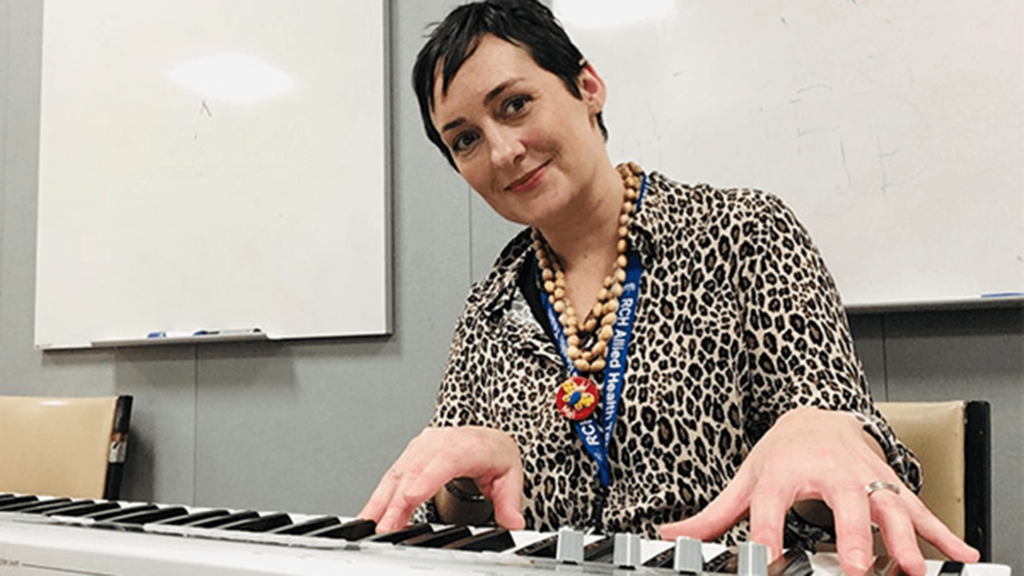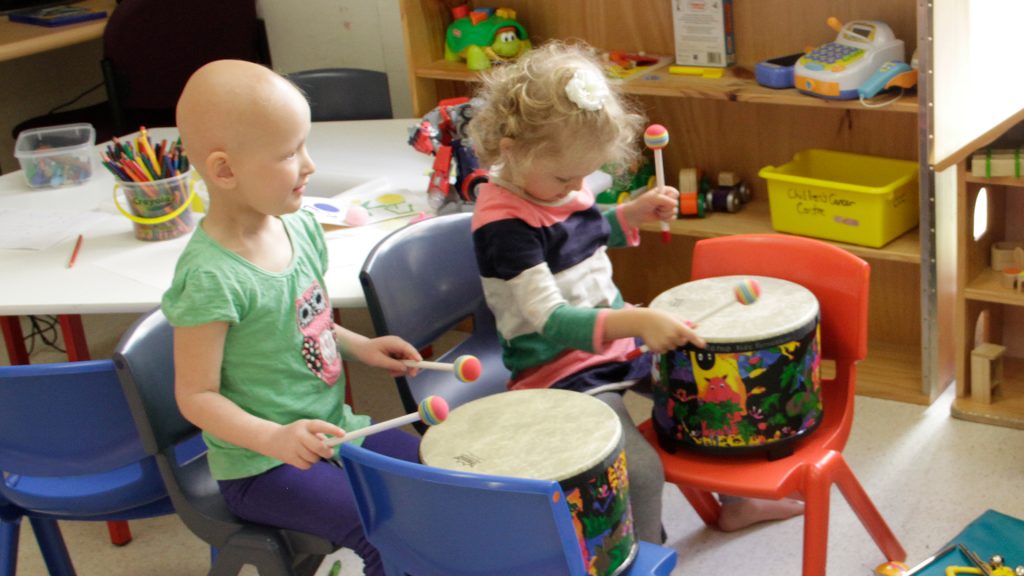If you have ever found yourself moved by the lyrics of a song or the sounds of an instrument or tapped your feet to a familiar beat, you’ve experienced the essence of music therapy.
The Children’s Cancer Foundation funds Music Therapy for patients at the Royal Children’s Hospital and Monash Children’s Hospital since 2009, with funding of close to $2 million awarded to help children with cancer cope during stressful treatment. Music therapist, Melina Roberts shares the benefits of music therapy for children going through cancer treatment.
Can you share something with us that not many people would know about you?

Melina Roberts: When I was in year 9, I wanted to be an archaeologist working in Egypt. My archaeologist ambitions were inspired by the idea of “a dig” and I remain fascinated by the people who are finding bones and artefacts from another time and place. I still secretly dream of volunteering in a faraway, forgotten location someday.
Who is your greatest musical inspiration and what three songs would we find on your current playlist?
Melina Roberts: First and foremost, I draw inspiration from my Dad Kerry who is a self-taught singer/guitar player. When I was a little girl, we would jam together, listening to Bob Dylan. My second inspiration is Mozart. I started playing the piano at age seven and Mozart continues to be motivation from a classical music perspective. As a parent, my playlists span the breadth of adult and children’s songs. Recently on a road trip with my family, Chateau (Angus and Julia Stone), Can’t Stop the Feeling (Justin Timberlake) and most of Coldplay’s songs were on rotation.
What drew you to a career in Music Therapy?
Melina Roberts: I grew up in Castlemaine and during my childhood, I spent many happy hours with my family listening to records and mum Brenda’s favourite band, Simon and Garfunkel. In fact, it was my mum who came across the “allied health profession that isn’t teaching” while reading a careers publication.
My early affinity to music, and, in particular, my love of classical piano and guitar blossomed during my senior high school years. I completed a Bachelor of Music in 2000, followed by my Masters of Music Therapy research degree at the University of Melbourne.

Before a child in treatment begins music therapy here at The Royal Children’s Hospital, we assess them and their family. Based on individual needs, we determine what their therapeutic needs are and how quickly they require therapy. Next, we decide what music therapy method (i.e. playing instruments, singing along, creating song playlists, song writing etc.) are most appropriate, and the final step is reviewing any social or language factors required to meet a family’s needs.

Music therapy needs are assessed through these areas:
Every child you work with is important, but are there any particularly memorable moments you’ve had with children discovering their “musical selves”?
Melina Roberts: I genuinely enjoy getting to know all my patients. However, I do fondly recall one particular memory of a 6-year old girl who, having been newly diagnosed with cancer was withdrawn and felt her whole world was upside down.
Any final words to inspire others to consider a career in music therapy?
Melina Roberts: Meet other music therapists to discuss the different context and applications the role can have. Explore the different ways music therapy engages and provides coping skills for patients being treated in hospitals versus aged care versus palliative care and even in a school setting.
Photo Credit: photo by RCH Melbourne, Creative Studio
Mel Roberts works as a music therapist at The Royal Children’s Hospital Melbourne. She holds a Bachelor of Music (Music Therapy), and a Masters of Music Therapy.
Help children with cancer survive and thrive.
Donate today